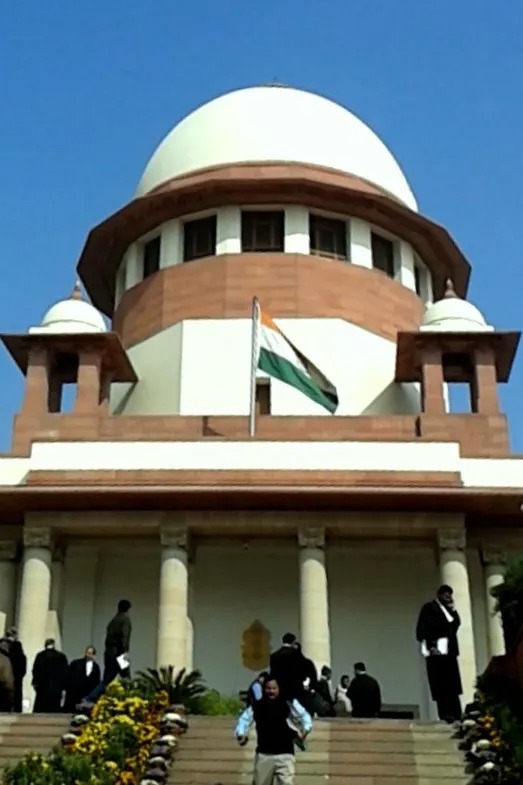R.L. Anand, J.@mdashThis is a defendant''s appeal and has been directed against the judgment and decree dated 15.2.2000 passed by the Court of Additional District Judge, Ambala, who, affirmed the judgment and decree dated 12.6.1999. passed by the Court of Civil Judge (Sr. Division) Ambala, who had decreed the suit of the plaintiff for possession of the shop, fully detailed and described in the head note of the plaint and also granted a money decree for a sum of Rs. 1440/- being the arrears of rent with effect 1.12.1994 to 31.5.1996.
2. The brief facts of the case are that Shri Yoginder Pal plaintiff filed a suit for possession by way of ejectment of a shop fully described and detailed in the head note of the plaint and he also made a prayer that a decree for a sum of Rs. 1440''-, being the arrears of rent with effect from 1, 12, 1994 to 31.5.1996, be granted in his favour. The case set up by the plaintiff-landlord was that the premises are situated in village Shahzadpur where the provisions of Haryana Urban (Control of Rent and Eviction) Act, 1973 are not applicable. The shop in question was let out to the defendant at a rate of 80/- per month. The defendant did not prove a good tenant. His tenancy was terminated. Earlier a suit for possession was filed in the year 1987. That suit was contested by the appellant. The suit was decreed on 16.8.1994 and the defendant was directed to hand over the vacant possession. The defendant filed an appeal against the judgment and decree which was allowed on the technical ground that there existed a Municipal Committee on the date of the issuance of the notice u/s 106 of the Transfer of Property Act and the notice in the said suit was not valid. So the judgment and decree dated 16.8.1494 were set aside. The respondent served another notice dated 6.5.96 terminating the tenancy. The notices were sent under the U.P.C. and by registered post. In spite of the termination of the tenancy the defendant had not vacated the premises. Hence the present suit.
3. Notice of the suit was given to the defendant. The defendant admitted that he is a tenant under the plaintiff. He also submitted that now there is no Municipal Committee at Shahzadpur and there is a Gram Panchayat. According to the defendant, the present suit is barred by the principle of res judicate as also by the provisions of Order 2 Rule 2 C.P.C. Otherwise also, the tenancy has not been validly terminated by a notice u/s 106 of the Transfer of Property Act. With this defence, the defendant made a prayer for the dismissal of the suit.
4. The plaintiff filed a replication in which he reiterated his allegations made in the plaint by denying those of the written statement.
5. On the pleadings of the parties, the following issues were framed :-
1. Whether the tenancy of the defendant has been terminated ? OPP
2. Whether the defendant is in arrears of rent. If so what amount? OPP
3. Whether the Civil Court has no jurisdiction to try the present suit ? OPD
4. Relief.
6. The parties led their evidence is support of their case and on the conclusion of the proceedings, the writ was decreed by the trial court on 12.6.1999.
7. Aggrieved by the judgment and decree of the trial Court, the defendant filed an appeal before the first appellate Court, Ambala, who dismissed the appeal for the reasons given below :-
"I have gone through the evidence on record and have heard the learned counsel for the parties.
It has been argued by the learned counsel for the appellant that in the present case, the notice is not valid. So that tenancy has not been duly terminated. Therefore, the appellant is not liable to hand over the vacant possession of the demised premises to the present respondent. I have gone through the notice which is Ex.P.2 on record. Para 8 of the notice reads as under:-
"That the defendant has hot proved himself to be a good tenant and as such the plaintiff does not want to retain the defendant as tenant in the shop in question any longer and as such the plaintiff through his counsel terminated the tenancy of the defendant with clear 15 days notice expiring with end of the English calender month vide registered AD notice dated 6.5.1996, acopy of the said notice was also sent to the defendant under UPC. The said notice sent through registered/AD was duly received by the defendant but the defendant managed to retain the AD. The copy sent through UI''C was also delivered to the defendant."
From the receipt Ex. P.3 it is apparent that the notice was despatched on dated 8.5.1996 and the suit was filed on 14.6.1996. It has been argued by the learned counsel for the appellant that as the tenancy has been terminated with effect from 31.5.1996 and the suit was filed on 14.6.1996 so there is no clear notice of 15 days and the notice is invalid and improper. To my mind this argument of the learned counsel is without any force. The notice was despatched on 8.5.1996 terminating the tenancy so the notice is perfectly valid otherwise also the provisions ot" Section 106 of the Transfer of Property Act are not applicable in the State of Haryana and only the equitable principles are applicable. In these circumstances reasonable period has been given to the appellant to hand over the vacant possession. Therefore, the notice is valid, fn this regard reliance has been rightly placed by the Learned Civil Judge on the ratio of the case titled Avinash Chan-der etc. v. Garg Wool Company, 1991(2) PLR 61. So, the findings of the learned trial Court are perfectly correct and are based on proper appreciation of evidence on record and proper application of law. So the findings of the learned trial Court are hereby affirmed".
8. Still not satisfied with the judgment and decree of the appellate Court, the defendant has filed the present appeal.
9. I have heard Shri T.R. Arora, Advocate, appearing on behalf of the appellant and Shri Ashok Gupta, Advocate, appearing on behalf of the respondent and with their assistance have gone through the record of the case.
10. The only argument which was raised by the learned counsel for the appellant is that the notice u/s 106 of the Transfer of Property Act terminating the tenancy of the defendant-appellant is not legal and therefore, the suit of the plaintiff has been wrongly decreed by the Courts below. I am not in a position to subscribe to the argument raised by the learned counsel for the appellant. The tenancy of the defendant-appellant is from month to month. The record of the trial Court show that the plaintiff served a notice Ex. P.2 before filing the suit in which he had clearly terminated the tenancy of the defendant by giving a fifteen days notice expiring with the end of the English Calendar. This notice was dated 6.5.96. It was despatched on 8.5.1996 as is evident from the postal receipt. P.3. The suit was instituted on 14.6.1996.
11. Now, the only point for determination is whether the suit, which was instituted on 14.6.1996, is a good one or not ?
12. The requirement of the law is that when the tenancy is from month to month, there should be fifteen days clear notice to the defendant before terminating his tenancy. As I have just stated above that the notice was despatched on 8.5.1996 and the suit was filed on 14.6.1996. Thus, there is a clear fifteen days notice of the termination of the tenancy. We all know that the provisions of Section 106 of the Transfer of Property Act are not strictly applicable to the States of Punjab and Haryana and only the equitable principals are applicable. The filing of he suit on 14.6.1996 does not create any defect in the institution of the suit. Thus, I repel the only argument raised by the learned counsel for the appellant.
13. Faced with this difficulty, the learned counsel for the appellant then submitted in the alternative that some reasonable time may be granted to the tenant so that he may be able to vacate the demised premises. Two months time is granted to the tenant to vacated the demised premises and hand over the actual physical possession to the landlord-respondent. There shall be no order as to costs.
14. Appeal dismissed.

